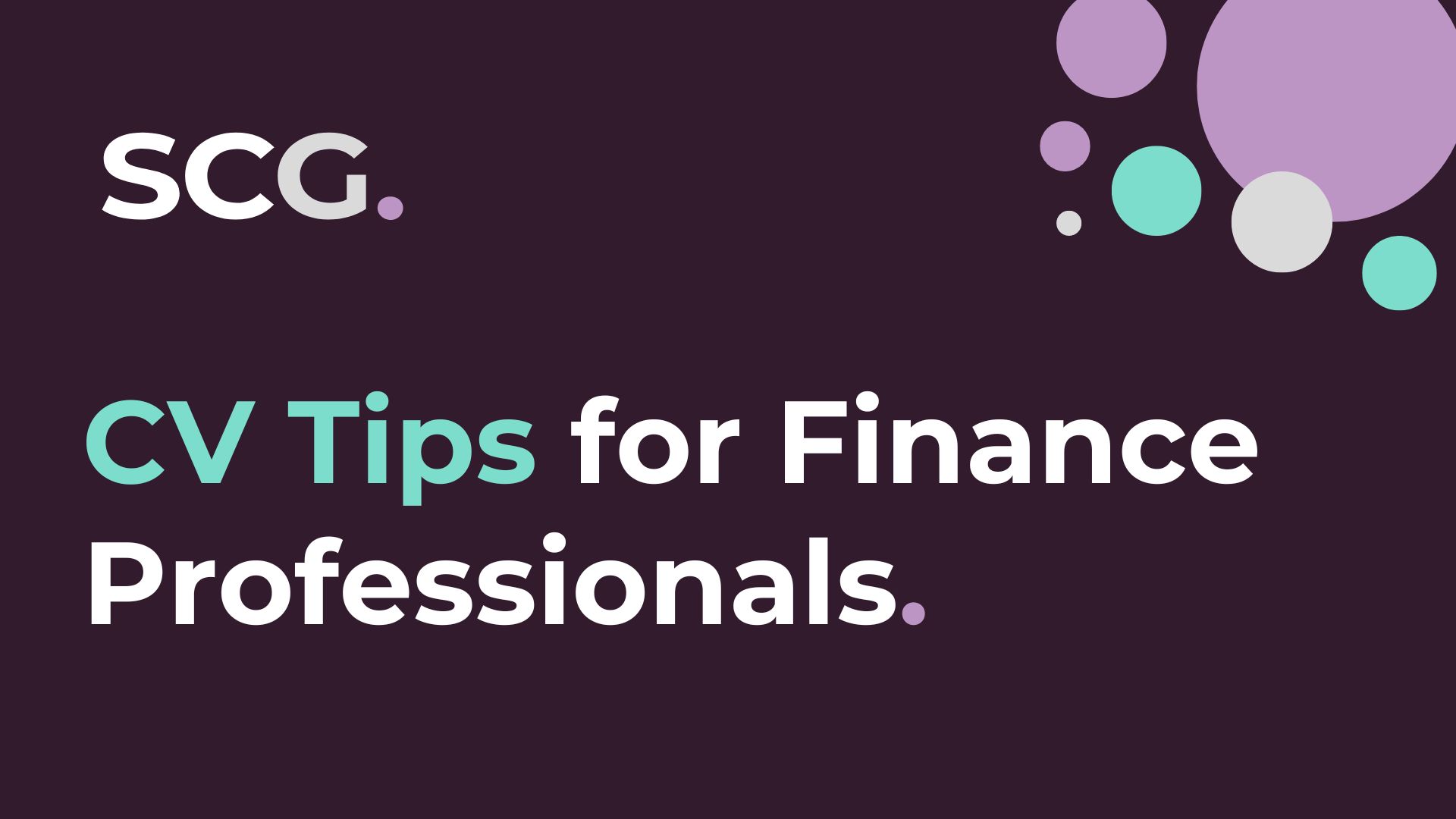
8 Killer Questions to Ask in a Finance Interview
30 Jan, 20241-2 minutes
In this blog, you will learn:
- 8 questions to ask hiring managers in a finance interview.
- The benefits to asking questions in a finance interview.
- Where the latest finance jobs are and how to apply for them.
You’re coming to the end of your finance interview and the final but inevitable question will be ‘Do you have any questions for us?’ This question usually signals the end of the interview so this is your final opportunity to showcase your knowledge, curiosity, and strategic thinking - which are all essential traits for success in the finance industry.
To end the interview on a high and to leave a positive final impression, you need to have some pre-prepared killer questions lined up.
But what are the best questions to ask the hiring manager to give you a competitive edge? In this blog, we'll unveil eight killer questions that will not only impress your interviewers but also help you gain a deeper understanding of the company, its financial health, and the role you’ve applied to.
These questions aren't just designed to help you get the job; they're also a valuable tool for assessing whether the organisation is the right fit for you and your career goals. Let’s dive in!
What are the benefits to asking questions in a finance interview?
An interview doesn't just provide a business with the opportunity to assess a candidate's suitability for the finance role, it is also a chance for the candidate to gain insights on the company and the role.
When attending an interview for a finance position, asking insightful questions can demonstrate a candidate's interest and knowledge. Not only does it provide candidates with valuable information but also demonstrates genuine commitment to the role and shows that the candidate is an engaged listener.
By not asking any questions, it could make you appear disinterested, unprepared, or lacking in curiosity. This is not the impression you will want to leave in the interviewer's mind.
Specialist finance recruiter, Shannon McGarry, said “An interview is a two-way street so it’s important to ask questions to make sure that you do want the role. If you don’t ask them questions, you might miss red flags which could impact your decision to accept an offer.”
Finance interview questions to ask the hiring manager
8 killer questions to ask in a finance interview include:
- What does a typical workday look like for this position?
- Could the job's responsibilities change within a year?
- What are the key performance indicators that are most important for this role, and how do you measure success?
- How does this role interact with other departments?
- What types of financial systems, software, or tools does the company use for financial analysis and reporting?
- Can you describe the career growth opportunities for someone in this finance role?
- What are you hoping the person who fills this position will accomplish in their first 12 months?
- How is the company expected to grow and change in the next five years?
What does a typical workday look like for this position?
When finding the right role and organisation, it is important for candidates to determine the typical day to day operations and requirements for the role. This question is specific to the role and demonstrates that the candidate is prepared and eager to understand the immediate priorities of the role.
Understanding the workday is essential to allow candidates to assess the scope of their responsibilities and the impact of their work. Asking this question can determine a candidate's suitability for the role and how their skills can contribute to the success of the business.
Not only will it demonstrate interest and enthusiasm, but it helps candidates to understand more about the expectations of the role to determine whether they have the relevant experience.
Could the job's responsibilities change within a year?
The finance workforce, whether it be a Finance Director, Finance Analyst or a Finance Business Partner can experience changes in their responsibilities depending on the organisation.
According to an ACCA report, 58% of UK respondents expect to move to their next finance role within 12 months. Candidates could ask this question in their finance interview to track the responsibilities of the role and any opportunities for growth.
Primary duties can change depending on the size of the organisation and it is important for the candidate to be aware of how the role can develop. It is particularly beneficial to the candidate if they have plans to develop their career and climb up the financial career ladder.
What are the key performance indicators that are most important for this role, and how do you measure success?
Every employee wants their success and talent to be recognised by their employers meaning that candidates will likely want to know how their performance will be measured.
Key performance indicators (KPIs) can help companies measure success and highlight areas of improvement to be more effective, efficient and productive.
Constructive feedback facilitates growth in the workplace, whether it’s working to targets, receiving feedback in annual reviews/1-2-1s or being offered rewards like Employee of the Month, it is important for candidates to be aware of how they will be assessed and if there are rewards for those who do well.
Not only does asking this question give candidates an indication of whether the company’s objectives align with their goals, but it expresses the candidates commitment to achieving measurable outcomes and refining their skills.
How does this role interact with other departments?
In a finance interview, it is important that the candidate expresses interest not just in their role but also that of other individuals or departments. Understanding the importance of collaboration and what departments you will be expected to work with will give candidates an insight into the culture, work ethic and efficiency of the company.
Everything the finance department does directly involves other departments, so candidates can expect to collaborate across multiple departments in order for the company to be more efficient and run smoother.
Collaboration in finance involves regularly sharing crucial information across departments, providing them with the data they need to better manage their department. Understanding the collaborative process of a company, can give the candidate an insight into the role, coworkers and the company.
What types of financial systems, software, or tools does the company use for financial analysis and reporting?
This question demonstrates the candidates readiness to adapt to the organisation's technology or software (such as QuickBooks, Sage or Xero) and helps them to gauge the level of sophistication in their financial operations.
It is important for candidates to be aware of what software or tools they will be expected to use for daily tasks and financial analysis. Asking this question shows that candidates have an interest in how the company does things.
To gain more insight into the equipment they will be expected to use, candidates might have follow up questions about softwares and tools. Candidates can mention tools they have previously used in their answer and how useful or important they found them.
Can you describe the career growth opportunities for someone in this finance role?
According to talent management platform Zavvy, 94% of team members say they would stay with a business for longer if it offered opportunities for learning and career development. Asking this question demonstrates to the employer that the candidate wants to progress in their role and see if their goals align with the business.
Many finance professionals want to develop new skills and abilities and will want to work for an organisation that provides them with opportunities for career growth. During the interview, be specific and ask for examples of team members who have progressed within the department.
This expresses the candidates long-term interest in the company and their desire for professional training and development. The hiring manager will be impressed to learn that candidates have plans and goals to move into higher-paying roles, to opportunities to take on more responsibilities at work.
What are you hoping the person who fills this position will accomplish in their first 12 months?
With this question, candidates can determine what it is they are expected to achieve in their first year in the role, and set a goal to work towards. If the candidate is new to the role, it can be beneficial to be aware of how they are expected to perform and what they are expected to achieve in the first year.
If this aligns with the candidate's vision for the role, then this can not only confirm the candidate's own expectations, but also demonstrates to the hiring manager that the candidate has long-term goals and is committed to the organisation.
The question can prompt discussion about the company’s strategy for financial growth and stability in the coming years, and how this role contributes to that vision.
How is the company expected to grow and change in the next five years?
Asking this question to the hiring manager in a finance interview is a great way of demonstrating your interest in the company’s outlook and strategy for financial growth and stability in the coming years.
The finance department plays a crucial role in any strategic plans for the future, therefore, it is important for candidates to gain as much information as possible about the future of the company and how their role contributes to that vision.
Management needs the input of finance to create a 5-year plan and this question highlights the candidates understanding of the role finance plays in the business. The hiring manager's answer can give the candidates an insight into the future of the company whether that be economical issues or future plans.
Find your dream finance job
If you’re looking for your dream finance job, why not check out all the latest opportunities which are currently available? We work with employers, predominantly in the Lancashire and Cumbria areas, to deliver the best finance career opportunities.
If you can’t find what you’re looking for, simply upload your CV to be contacted as soon as relevant opportunities become available.
Recruiting for finance professionals?
As a specialist finance recruitment agency, we support businesses, predominantly in the Lancashire and Cumbria areas, with their staffing needs. If you’re struggling to recruit, why not get in touch with our Principal Consultant, Shannon McGarry, to discuss how we can work together to secure top talent for your business.
We recently interviewed Shannon to discover how the finance job market works and current challenges in the industry. Check it out now!
Meet Shannon McGarry
Who is Spencer Clarke Group?
Since 2017, we've been changing the face of recruitment. From our employees, to the way we do business, to the culture within our office, we're determined to make a difference and create a positive impact on everyone around us.
Recruitment to us isn't just about matching candidates and clients; we’re passionate about finding candidates the perfect job which has the ability to boost their salary and standard of living, better their work life balance and improve their mental health.
Similarly, we understand the impact which an experienced and skilled employee can make to a business and we love seeing clients thrive through the hard work of candidates which we have placed with them.
We operate in two sectors:
In eleven specialisms:
Healthcare, Social Care & Nursing
Corporate Functions & Business Support


